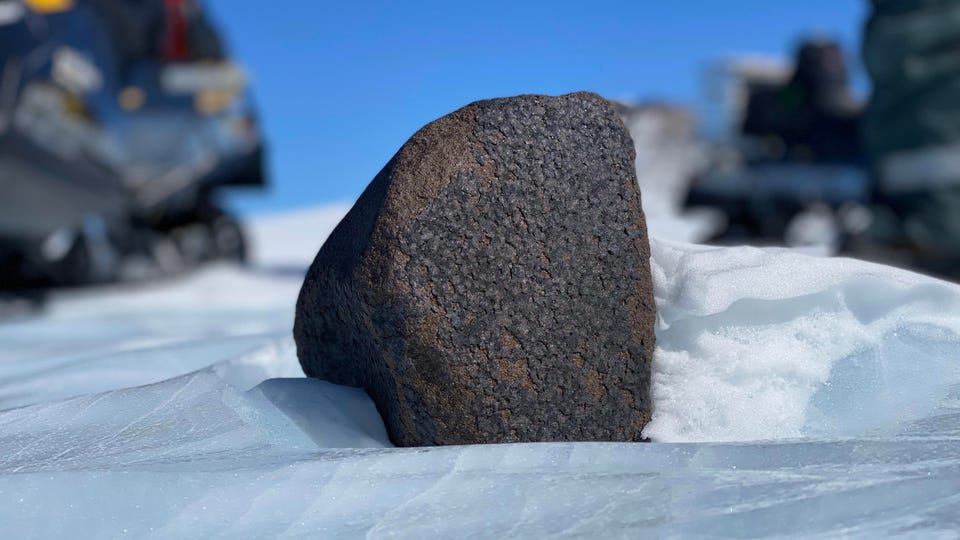Massive Meteorite Found In Antarctica Is One Of The Largest Ever


Courtesy of Maria Valdes
Courtesy of Maria Valdes
An international team of researchers have just returned from Antarctica with a meteorite that weighs 16.7 pounds/7.6 kg.
“Size doesn’t necessarily matter when it comes to meteorites, and even tiny micrometeorites can be incredibly scientifically valuable,” says Maria Valdes, a research scientist at the Field Museum and the University of Chicago. “But of course, finding a big meteorite like this one is rare and really exciting.”
Valdes estimates that it’s one of the 100 largest of the 45,000 meteorites retrieved from Antarctica over the past century.
A meteorite is a piece of rock or metal that has fallen to Earth from outer space.
“Studying meteorites helps us better understand our place in the universe,” said Valdes. “The bigger a sample size we have of meteorites, the better we can understand our Solar System, and the better we can understand ourselves.”

The researchers with their 16.7-pound find. White helmet: Maria Schönbächler. Green helmet: Maria … [+] Valdes. Black helmet: Ryoga Maeda. Orange helmet: Vinciane Debaille. Photo courtesy of Maria Valdes.
Courtesy of Maria Valdes
The meteorite is one of five found by the team during their expedition, all of which will now be analyzed at the Royal Belgian Institute of Natural Sciences. The expedition of four scientists was led by Vinciane Debaille of the Université Libre de Bruxelles and used new satellite images of where potential meteorite impact zones might be.
“Going on an adventure exploring unknown areas is exciting, but we also had to deal with the fact that the reality on the ground is much more difficult than the beauty of satellite images,” said Debaille. The team had to trek through ice fields, though temperatures in Antarctica’s summertime were only around 14° F/-10° C.

The team hiking past rock formations in Antarctica.
Courtesy of Maria Valdes
Antarctica is one of the best places in the world to hunt for meteorites because it’s a desert, so falling meteorites don’t get weathered or eroded. The black meteorites also stand out clearly against the white snow and blue glacial ice fields, the latter of which often churn-up meteorites as they move.
The continent’s lack of human habitation and industrial development also means that meteorites are less likely to have been disturbed—or discovered.
Wishing you clear skies and wide eyes.
